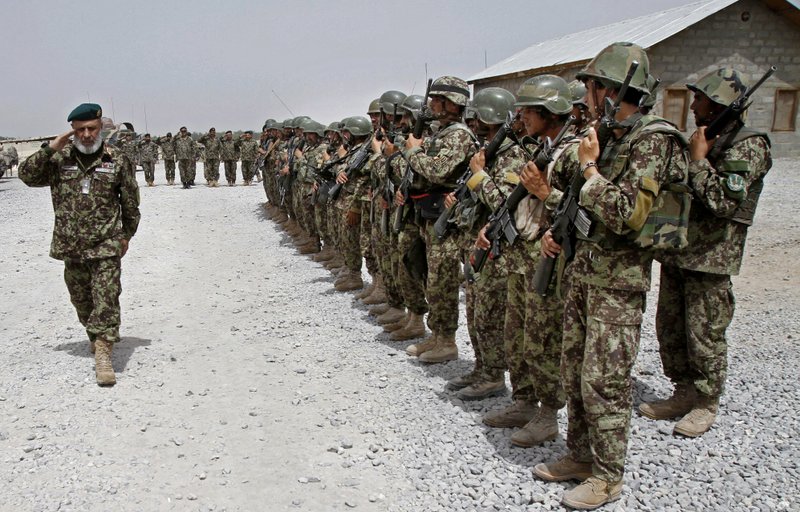KABUL, Afghanistan -- The Taliban captured a key district center in Afghanistan's southern Helmand province on Thursday, and in the country's north, an officer turned his rifle on sleeping colleagues, killing nine policemen, officials said.
The fall of Sangin district, once considered the deadliest battlefield for British and U.S. troops in Afghanistan, comes amid the insurgents' yearlong push to expand their footprint in the Taliban heartland of Helmand.
The British who took over southern Helmand in 2006 were headquartered at Camp Sebastian, which at its peak was the center for 137 bases in Helmand. Most of the United Kingdom's more than 400 military deaths occurred in Helmand province -- in Sangin alone, the U.K. lost 104 soldiers.
Since the withdrawal of NATO combat troops from Afghanistan at the end of 2014, and with only a small, U.S.-led training contingent in the area, Sangin has been seen as a major test of whether Afghan security forces can hold off Taliban fighters.
The district's police chief, Mohammad Rasoul, said the Taliban overran Sangin center early on Thursday morning.
Taliban spokesman Qari Yousuf Ahmadi, also issued a statement claiming the Taliban capture of Sangin.
Speaking by phone several miles from the district center, Rasoul said the district headquarters had been poorly protected and that at the time of the Taliban siege, only eight policemen and 30 Afghan soldiers were on duty.
Afghan security forces were now amassing nearby for a full-scale counterattack to retake Sangin, Rasoul said, though he did not say when the assault would occur and how many forces would be involved.
It wasn't immediately clear whether the Afghan military would seek the help of international coalition forces in the area.
NATO spokesman William Salvin said in a statement that Afghan troops remained in Sangin district but had relocated several miles outside the district center. He said the relocation was necessitated because of the extensive damage to the district center by the Taliban.
In Kabul, a lawmaker from Sangin, Mohammad Hashim Alokzai, urged the military to move quickly to retake the district, saying its fall could have devastating consequences for Helmand, where the provincial capital of Lashkar Gah has in the past months also come under constant and heavy attack by the Taliban.
Sangin is also one of the biggest opium markets in Afghanistan, which saw about 5,300 tons produced countrywide in 2016 ---- more than all other opium-producing countries combined, according to the United Nations Office on Drugs and Crimes. Efforts at poppy eradication in Afghanistan have been severely restricted because of the insecurity in the southern and eastern regions of the country, where the bulk of the crop is grown.
Opium, which is used to make heroin, is a major source of income for the insurgents.
In northern Kunduz province, police spokesman Mafuz Akbari said the insider attack on Thursday that claimed the lives on nine policemen took place at a security post and that the assailant escaped under the cover of darkness.
The Taliban claimed responsibility for the attack.
Also Thursday, a U.S. State Department official said the United States won't attend a multinational peace conference on Afghanistan next month in Russia.
The reasons, the official say, are that the U.S. wasn't consulted before receiving the invitation and doesn't know Russia's objectives for the gathering.
The official wasn't authorized to speak publicly on the matter and demanded anonymity.
The official said the U.S. wants to work with Russia on regional efforts to end the 16-year war and that U.S. Secretary of State Rex Tillerson would bring up the matter when he visits Russia in April.
Afghanistan, Pakistan, Iran, India and several Central Asian nations are among the invitees to the Moscow conference. Afghan and U.S. officials say the Taliban aren't invited.
Information for this article was contributed by Matthew Pennington of The Associated Press.
A Section on 03/24/2017
